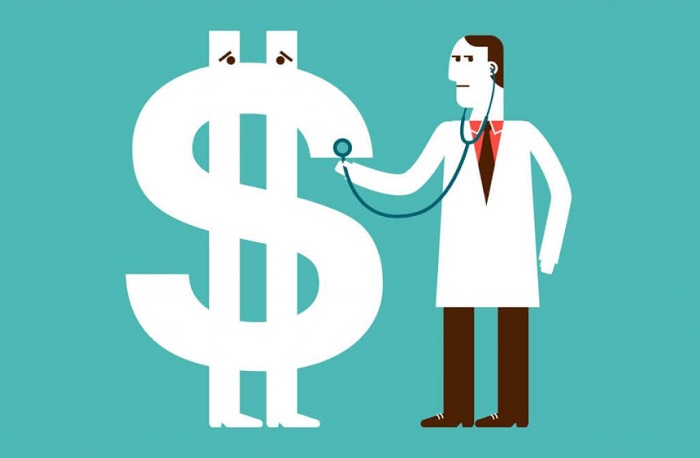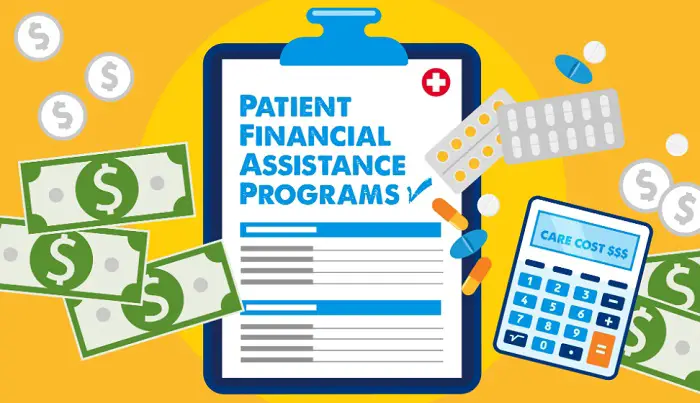- SurveyJunkie: Make $5-$25 in your free time. Just take online surveys, participate in Focus Groups and trying new products. Join SurveyJunkie Now!
Healthcare cost management is a vital part of ensuring a healthy financial future for individuals and families. With the ever-increasing costs of healthcare, managing medical expenses can be a challenge. Fortunately, you can employ careful planning and creative strategies. It is possible to reduce medical expenses and keep out-of-pocket costs at an acceptable level.
Starting with prioritizing health needs and ending with opting for financial assistance, this article will provide insight into the different strategies available for managing healthcare costs. We will examine the different types of methods. And we will look at insurance plans and budgeting approaches, which can help in reducing medical expenses.
See also: Secure Your Next Trip with Online Travel Insurance
Table of Contents
Healthcare Costs
The skyrocketing cost of healthcare has become a major concern for many individuals and businesses. Did you know that the average American spends well over $4,000 yearly on medical expenses?! It’s no wonder that many are looking for strategies to help manage these costs. Fortunately, there are several cost-saving approaches available to reduce medical expenses and keep more money in your pocket.
From using generic medications instead of brand names to negotiating prices with providers, the key is understanding the various options available and how they can benefit you. By exploring different ways to save on healthcare costs, consumers can take control of their finances. They can make sure they are getting the best possible services while still staying within their budget. The solution lies in finding ways to reduce healthcare costs so that everyone can get the care they need. All without bankrupting themselves or their employer.
Causes Of Increasing Expenses
Healthcare costs have been rising steadily over the years, and many people are looking for ways to reduce their healthcare expenses. As medical technology advances and medical treatments become more complex, the cost of healthcare continues to rise. To better understand how to reduce healthcare costs, it’s essential to explore some of the critical causes of increasing healthcare expenses.
One major factor contributing to higher healthcare costs is the rising prices of prescription drugs. Pharmaceutical companies often charge large amounts for new drugs, driving up expenses for consumers and insurance companies. Additionally, as people age, they require more expensive treatments and medications, which can significantly add up over time. Furthermore, lifestyle choices such as smoking or poor diet can lead to costly diseases that can strain budgets even further.
However, individuals can reduce healthcare spending by implementing a few simple strategies.
Strategies For Reducing Medical Expenses
Given below are some of the ways in which you can manage your healthcare cost and save on medical expenses.
Prioritizing Health Needs
Healthcare costs are a growing concern for many Americans, especially as the population ages. In an era of rising medical costs, it is increasingly important for individuals to prioritize their health needs to reduce medical expenses. With the right strategies, individuals can take control of their healthcare spending and keep costs down.
One of the most effective ways to reduce medical expenses is to be proactive about preventive care. Regular check-ups, immunizations, and screenings can help detect potential problems early on and lower the chances of having to deal with expensive treatments down the line. Additionally, individuals should be aware of any chronic conditions they may have and work with their doctor to develop a treatment plan that meets their individual needs while minimizing cost.
By taking advantage of programs like Medicare or Medicaid, individuals can receive more affordable coverage that covers various services such as primary care visits or prescription drugs.
Shopping For Healthcare Services
When it comes to reducing medical expenses, many individuals and families often overlook opportunities. The main thing they overlook is the opportunities to shop for healthcare services.
Cost-cutting strategies for healthcare can include comparison shopping for medical services. It significantly helps people and families reduce their medical spending. Expenses include doctor’s visits, medications, lab tests, treatments, and surgeries. While it may seem intimidating at first glance, shopping for healthcare services is quite straightforward once you understand how to do it correctly.
The first step in shopping for healthcare services is to research your options. Researching local providers will give you a better understanding of what services are offered in your area and which providers offer the best prices or discounts. Additionally, some websites let you compare pricing from several service providers to identify the most cost-effective choice.
Lowering Medication Costs
It’s no secret that medical expenses can quickly add up, especially with the increased costs of medications. Many people find themselves unable to afford the necessary medications they need. This leaves them with difficult choices between their health and their pocketbook.
The first step in reducing your medication costs is to talk to your doctor about generic alternatives. Generic medications have similar active ingredients as brand-name drugs but cost much less money than their more expensive counterparts. Your doctor can advise you on which generic alternatives might work best for your condition or if it’s even an option for you.
Your insurance plan cannot cover a typical prescription if you have insurance. The best course of action is to call your insurance provider and inquire about the covered expenditures. A yearly deductible is another requirement for many policies before the insurance provider will pay anything.
Insurance Benefits Analysis
A well-thought-out insurance benefits analysis can go a long way. Many individuals and families are looking for ways to reduce medical expenses and healthcare costs. With that being said, finding the best approach can be difficult.
Understanding insurance benefits is an essential first step in creating an effective plan for reducing medical expenses. It provides insight into what coverage is available and how much of the cost needs to be paid out-of-pocket.
A comprehensive insurance benefits analysis helps individuals compare options from different providers. It helps them identify areas where money can be saved on healthcare costs. During this process, individuals should review their current health plans. They should look at policy details such as co-pays, deductibles, coinsurance rates, out-of-pocket limits, and any additional services that might be included or excluded.
Financial Assistance Programs
Healthcare costs can burden people, leaving them feeling overwhelmed and unable to access the care they need. Fortunately, there are financial aid programs available to help lower healthcare costs. These programs can provide a variety of types of assistance, such as discounts on prescription drugs, free or reduced-cost medical services, and even grants to cover medical expenses.
Financial assistance programs are typically administered through hospitals and health centers, but they may also be offered through employers or other organizations such as churches or charities. In most cases, the application process is simple – usually only requiring basic information about income and family size – so it’s worth applying for any programs you may qualify for. Additionally, these programs often offer more than just financial assistance; many provide educational resources to help individuals better understand their healthcare options.
These programs provide direct monetary aid or discounts on services that can be used to pay for medical bills or insurance premiums. Hospitals, charities, and government entities such as Medicare and Medicaid offer financial assistance programs.
Some employers also offer health benefits that can help offset the cost of medical care. Additionally, nonprofit organizations may provide grants or discounted services for those with limited income or no insurance coverage.
FAQs
How can I reduce medical expenses?
You can reduce medical expenses by Prioritizing Health Needs, Shopping For Healthcare Services, Lowering Medication Costs, Insurance Benefits Analysis, and Financial Assistance Programs.
What is medical payments coverage?
Medical payments coverage is auto insurance that pays for medical expenses resulting from an accident, regardless of who is at fault.
Conclusion
There are many ways to save money on medical expenses. Taking some proactive steps discussed, such as researching prices ahead of time, using generic medications when possible, and discussing treatment options with your doctor, can help you manage your healthcare costs while still getting the care you need. Staying informed and aware of all available options can also be beneficial in helping you reduce your out-of-pocket medical expenses.
Healthcare cost management strategies also require consumers to take a long-term view and make smart decisions today that will benefit them in the future. Understanding insurance policies, taking advantage of preventative care initiatives, investing in supplemental health insurance plans, and having an emergency fund are just a few ways individuals can prepare themselves financially for potential medical bills.
See also: Salary Breakdown: How Much Do Chiropractors Actually Make?








